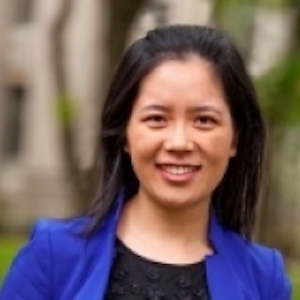THRUST 3: AI FOR DATA-DRIVEN CONTROL
We will leverage the remarkable successes of ML towards the control of modern complex dynamical systems. Reinforcement learning (RL) is a class of ML that addresses the problem of learning to control physical systems by explicitly considering their inherent dynamical structure and feedback loop. To date, the successes of RL have been limited to very structured or simulated environments, and its successes in real-world systems are few. RL has significant challenges involving: (i) Scalability: How to develop scalable RL methods for large-size network multiagent (MARL) dynamical systems? (ii) Robustness: How to maintain the performance (efficiency and safety) of the learned policies even when there is a model class mismatch? (iii) Safety: How to guarantee RL maintains stability and stays in the safe constraint while still learning efficiently? We will develop critically enabling mathematical and computational architectures to overcome these challenges which are present in a diverse number of applications involving complex dynamical systems.
FACULTY THRUST LEADS
MISSION STATEMENT
Our mission is to develop innovative algorithms for real-time control of dynamic systems for their safe, reliable, and efficient operation, leveraging principles from AI, learning methods, model-based and model-free control, and optimization across the three thrusts of modeling, control, and sensing/optimization.
GOALS & MILESTONES
1st yr:
- AI Institute Inaugural Workshop: Presentations, posters, and networking
- Quarterly institute-wide meetings to share research, form collaborations, and discuss goals
- Recruitment effort to graduate students and postdocs for AI Institute projects
- Produce a diversity of publications, software, and preprints
- Integrate control problems into Common Task Framework for the February workshop
- February workshop: Dataset 1: Outdoor chemical plume and wind measurements, Dataset 2: Unsteady flow past a bluff body problem
- Develop novel nonlinear observability tools
- Formalize the problem and build the infrastructure for AI for PDE control problems
- Uncertainty and risk quantification for robust and safe control, planning, and learning
- Experimental setup: collect test data from an robotic vehicle testbed and simulation environment, and explore control paradigms for a distributed modular robot
- Milestone: Publish/update open-source datasets and control packages for the methods developed above
- Leaderboard for CTF control-theoretic problems (cross pollination of efforts on other members’ datasets)
- Integrate control-theoretic problems into Common Task Framework for February workshop: Dataset 3: Field data consisting of multi-sensor measurements, control inputs, and ground truths for outdoor quadrotor flights, Dataset 4: Field data of mobile robots from motion tracking, inertial sensors, controller inputs, and thruster outputs, Dataset 5: Shock-boundary layer interaction data
- Develop machine learning tools for discovering nonlinear observers for isolated states of noisy nonlinear systems
- Develop representation learning tools such as state aggregation and clustering and efficient computational methods for AI for PDE control problems
- Control algorithm development for robust and safe control, planning, and learning that leverages uncertainty and risk quantification developed in 2nd year
- Develop control packages of fluid dynamics and large-scale networked dynamical systems with examples of increasing complexity
- Experimental setup: Combine control with data-driven modeling for real-time control of nonlinear dynamics of mobile robots
- Study the dynamics of and develop control methods for distributed modular truss robots in different topology configurations
- Milestone: Publish/update open-source datasets and control packages for the methods developed above
- Develop taxonomy (metalearner) of control approaches tuning cost, computational efficiency, safety, adaptivity, resilience, scalability
- Robust submission process for the broader community for Common Task Framework problems
- Evaluate empirical AI for control metrics using CTF datasets and the experimental platforms
- Milestone: Publish/update open-source control packages for the methods developed above

